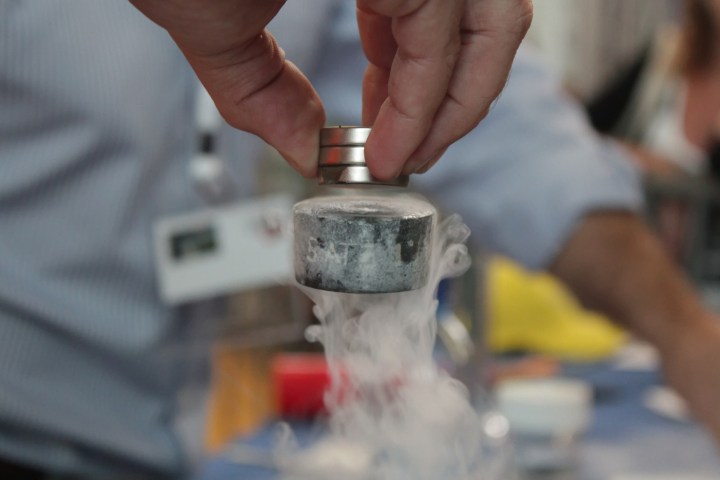
Superconductor breakthrough claims draw interest and skepticism
Superconductor breakthrough claims draw interest and skepticism

Some researchers in Korea have made an extraordinary claim that they’ve developed a superconductor that works at room temperature and pressure. It’s getting a lot of attention — and skepticism.
A room-temperature superconductor would levitate on magnets and transmit electricity with no resistance. It would be revolutionary. Think levitating trains, fusion reactors, significantly more efficient electrical grids. Korean researchers Sukbae Lee, Ji-Hoon Kim, and Young-Wan Kwon said in papers released last week that they have made one, LK-99, by combining copper and a mineral known as lead apatite.
“I think it’s a long shot because many extraordinary claims do not pan out,” said Doug Natelson, a physics professor at Rice University.
Natelson has concerns about the underlying data. There have been at least two claims this year that new superconducting materials have been found: One of those was recently retracted, the other requires high pressure to work.
“Over the years, there’s been a lot of what we call USOs, which means ‘unidentified superconducting objects,'” said Michael Norman with Argonne National Laboratory.
The recipe to make LK-99 is fairly easy, at least by scientific lab standards, so chemists around the world are trying.
“We have people at the lab who’ve grown samples and they’re measuring them, and we’ll see what they find,” Norman said. So far, he said, the samples do not levitate on magnets as a superconductor would.
“I expect there will be a room-temperature superconductor sometime in the next 30 years,” said Richard Greene, a physicist at the University of Maryland.
With so many scientists racing to replicate LK-99, he said we should know in a few weeks whether this Korean recipe is finally it.
There’s a lot happening in the world. Through it all, Marketplace is here for you.
You rely on Marketplace to break down the world’s events and tell you how it affects you in a fact-based, approachable way. We rely on your financial support to keep making that possible.
Your donation today powers the independent journalism that you rely on. For just $5/month, you can help sustain Marketplace so we can keep reporting on the things that matter to you.

















